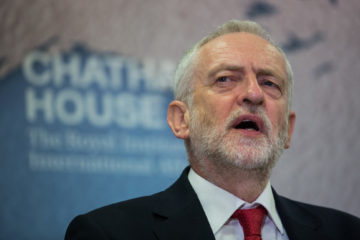Does the European Union rescue or transcend the modern nation-state?
Tugdual Le Lay, The London Globalist, 2012 Publication
Knowing whether the European Union (EU) has been rescuing or transcending the modern nation-state appears to be crucial – maybe even more since the recent financial crisis. Indeed, such interrogation would enable to identify more precisely the direction towards which the European project is heading: are we aiming at a federation, or at a States’ association? Depending on the answer, the solution to the on-going Eurozone crisis would be very different, probably ranging from letting Greece default – and maybe leave the common currency area – to the necessity of pooling the Member States’ debts. Hence, to identify a global trend to the European integration process enabling us to understand the fundamental nature of the Union, one might consider the study of its core dynamics.
Referring to the ‘European Union’ could have implied the necessity to evoke the integration process since 1992 when the European project came to be legally known as the ‘European Union’. However, it is more relevant to go beyond the sole Maastricht Treaty and focus on the wider political process. I will therefore understand this term as referring to the Union of European states process in general, i.e. since its launching in 1951.
There are two grand theories that have historically been used to explain the European project, each underlining two distinct core dynamics: (liberal) intergovernmentalists argue the EU rescued the modern nation-state, meaning states became more important thanks to European integration. While functionalists would claim the State is becoming an obsolete political unit: an increasing number of challenges would gain to be addressed at an upper level (economic crisis, environment, terrorism…). I must admit that this dichotomy seems to me clearly outdated and more academic than fitting with any kind of contemporary reality.
The European nation-state, an increasingly overwhelmed political unit
Since the launching of the EU, States have lost their sovereignty on an ever increasing range of issues. As a matter of fact, one might observe that institutions have long-term effects after their creation – founding Member States failing to keep them under total control. Indeed, whether it is by the generalization of ‘Qualified Majority Voting’ (QMV) or the co-decision process, the increasing integration needed for the Economic and Monetary Union, or the single position on WTO rounds notably, the European Union has been requiring Member States to give-up competences that were traditionally theirs, for the ‘common good’. It is therefore realistic to claim States are proving to be increasingly overwhelmed by the requisites of the EU integration process. The British case is extremely interesting: Cameron decided to isolate the UK from its European partners by not signing a Treaty that was clearly in the ‘common good’ but not enough in Britain’s particular interests.
The neo-functionalist theory, based upon the principle of the ‘spill-over’ effect suggests that such a degree of interdependence and integration is increasing. This theory therefore argues that whatever the level of integration, it will undoubtedly be even greater in the future. Besides all ECSC traditional examples, the current Eurozone crisis is a relevant case in point: officials are evoking the benefits of a Eurozone Finance minister, or of the pooling of EU debts. Such evolution was still considered unthinkable a few years ago. In other words, States are cooperating under the Community framework, and agree to lose part of their sovereignty on an increasing range of issues. Hence, one would argue that States are becoming irrelevant – compared to a transnational unit.
Finally, the EU is also able to make some third States conform to its willingness by economically or politically decreasing states’ autonomy. Indeed, the existence of a EU Common Market gives its members a comparatively huge advantage – by contrast with non-Members. Pressure to enter such a Union becomes even greater: costs of not joining increase as well as benefits in being part of it; and this is how some countries would adapt their markets’ institutions or accept political demands from the European Union – even before being a formal member of the club. The examples of Croatia, Serbia (judgment of former leaders) or Iceland (financial institutions’ reform) are the most contemporary cases of States conforming to international dictates.
Hence, one could argue the EU has made States irrelevant by decreasing their field of exclusive sovereignty, as well as by taking-off part of their political or economic autonomy (whether Member States or not). Moreover, because of the ‘spill-over’ effect and the nature of the issues the EU is asked to tackle, one might even suggest as explained above, that this process would unavoidably go further until States prove to be an overwhelmed political unit.
The EU, a reflection of the member states’ interests
At the same time, the European integration process as described earlier can be analysed as nothing more than a ‘myth’. Integration does not necessarily mean ‘surrender of power,’ interdependence will not automatically trigger integration, or even further with the EU economical doxa: there are other ways to do better trade than just by eliminating barriers. If States agreed to make such parallels among the notions, (linking integration and interdependence, better trade and no barriers) some argue, it is because it was in their interests – topics discussed being more technical than political. In other words, they left the EU dealing with technocratic and technical issues that would not need any sort of political negotiation over their sovereignty or any sensitive issue. Moreover, they strongly reject the idea that would present the European integration as a universal/unavoidable supranational project. On the contrary, it is driven by nationalism and patriotism which were way more present at that time than what one could believe.
They might even go further arguing that EU integration has been perceived by States as a unique opportunity offered to them to survive the post Second World War crisis. Indeed, they were now able to provide an “unparalleled level of security” and prosperity to their own citizens, more than ever before in history. Secondly, the EU can be seen as a means used by States to trigger and foster modern economic development (transport technologies, nuclear and spatial R&D, fight against climate change, etc.); and a way for them to increasingly cooperate on a wide range of issues. In a nutshell, the European Union can be considered as a political platform enabling States to negotiate on topics that were outside their initial competences stricto sensu.
Whether it is for the settlement of a legally-binding ECJ, the CAP or the EMU for instance, States found an interest in shaping these constraining/common policies. On the contrary, they do not hesitate to block the European integration process as soon as they feel their core interests to be threatened (European Defense Community, Empty Chair Crisis, French vetoes to UK adhesion, “I want my money back”, etc). Inte-governmentalists would therefore deny that European integration makes states old-fashioned; but rather they are the ultimate drivers of what can be considered as a diplomatic manoeuvre used to achieve goals and protect interests. The very contemporary British example would also perfectly fit here: they are ready to get isolated from the entire project because they argue their own national interests are not taken into consideration enough.
One might therefore draw from this type of literature that States are actually the drivers of European Integration. If some argue that it rescued States after the post-Second World War era, others would simply deny the fact that it leads to the overwhelming of the State apparatus. Very clearly, those visions of European integration seem incompatible; but are these two theories still acceptable today?
albeit still present, States’ features increasingly shared
It is unlikely the State will disappear: territorial sovereignty, equality among States and the fact they found institutions are presented as fundamental features which remain strong. It is clear that states are still deeply linked to territories. I note however that this represents the heart of the notion of the term: what would be left if a State would not have its own territory – would it still be a ‘State’? Can we really argue that States remain a core political unit on this sole basis – if all its other exclusive powers are increasingly disputed by regional/international organisations?
Equally true is the statement that States found international institutions. But I cannot believe that one could reasonably challenge that once they are created, institutions like the EU show they behave ‘on their own,’ in their own interest: the EU has been requiring (and obtaining, de facto o de jure) the shifting of an increasing number of powers – never taken back once acquired. The recent referendum Britain has held about this exact issue of power shifting to Brussels shows that States are assessing the relevance of delegating an increasing number of powers to the EU institutions – suggesting that they might seem overwhelmed by the process?
Thirdly, some argue that States negotiate on the basis of equality among them. On paper, nothing seems to contradict that basic feature of international law. However, practice proves to be very different, and there are signs inferring that (some) States might appear quite rapidly overwhelmed or underestimated. One might cite the case of Ireland who rejected the Lisbon Treaty a first time before being asked to vote again in order to achieve a more conform-to-expectations result. On the contrary, when France and the Netherlands said “no” to the Constitution for Europe, it was the end of the project. One could also cite the predominance of the Franco-German couple in the reaching of any conclusion or agreement – once again, the current Eurozone crisis could be used as an example.
The idea that State would entirely disappear or be the unconditional driver of any decision at the European level therefore appears to be too simplistic; as often, truth might lie somewhere in between. The notion of a political community based on shared or dual loyalties could be a more up-to-date answer allowing the perception of a constructive cohabitation among two different political units that actually answer different needs – symbolically and practically. Concretely feeling Breton, European or French at the same time is not incompatible, as it can respond to different needs, realities, or loyalties.
Conclusion
The European integration process has launched a process of power-shifting from member-states to Brussels, through the spill-over effect, by affecting states’ sovereignty and autonomy. One could even infer such a process could be unavoidable as Institutions tend to protect their own interest – the ‘common good’ in the case of EU Commission and even the Parliament, to a certain extent.
However, it would be misleading to conclude States are obsolete. As pointed out by others, European integration probably allowed the State not to disappear; but it remains to be seen whether the gradual shifting of power is a myth per se. States cope with it by settling trade-offs between their different interests. One might claim the political structure is very likely to survive, and it will keep defending its core interests according to its own preferences
Hence, to understand the European integration process, it is necessary to go beyond the inter-governmentalist and neo-functionalist dichotomy by acknowledging that different levels of loyalties might coexist, each of them answering to different needs or preferences.
However, the question remains open to know whether this particular coexistence of loyalties is particular to the European context, or if it is also observed in the case of more classical federations or international organisations – and to what extent. The answer to this question might be a step further in the way leading to identify the ultimate aim of the European project: an enhanced State cooperation forum or an actual federation?


